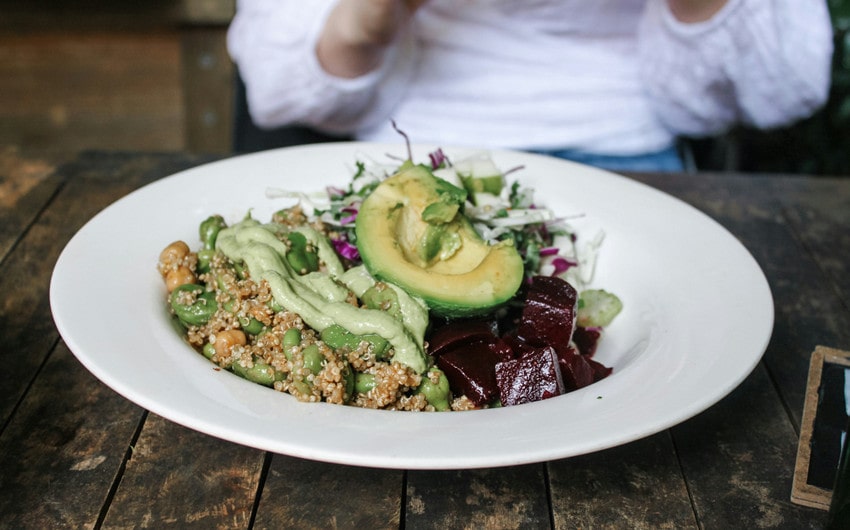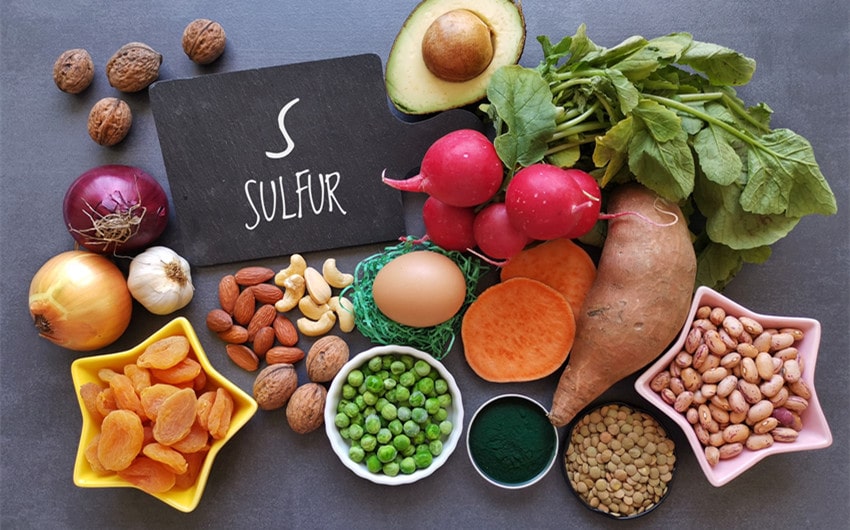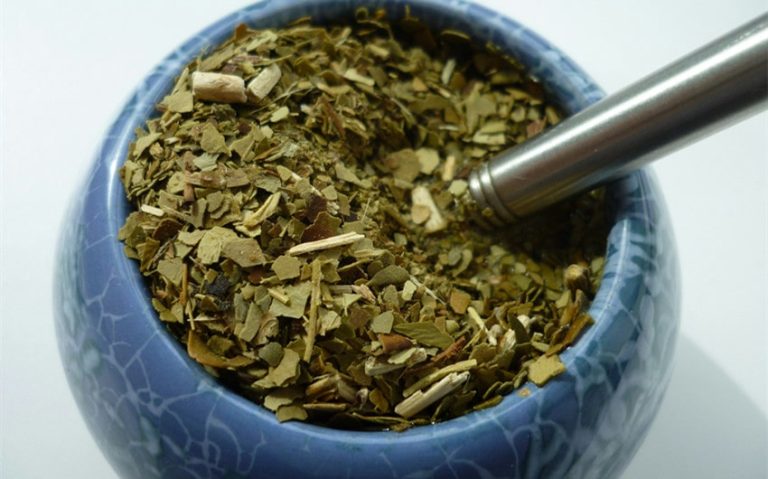Enhance Your Diet with 25 Foods That Contain Sulfur
Sulfur is an essential mineral that plays a vital role in your overall health, from supporting joint function to promoting healthy skin. Incorporating foods that contain sulfur into your diet can offer numerous benefits and enhance your well-being.
In this article, we’ll explore a variety of delicious and nutritious options that are rich in sulfur, helping you make informed choices for a healthier lifestyle. Whether you’re a seasoned health enthusiast or just starting your wellness journey, these foods can make a significant difference. Let’s dive in and discover the best sulfur-rich foods to include in your diet!
Cruciferous Vegetables
Cruciferous vegetables are well-known for their high sulfur content and numerous health benefits. These vegetables are not only nutritious but also versatile in cooking, making them an excellent addition to your diet. Here are some of the top cruciferous vegetables rich in sulfur:

1. Broccoli
Broccoli is a powerhouse of nutrients, including high levels of sulfur compounds like glucosinolates. These compounds are known for their detoxifying properties and ability to support liver function. Broccoli is also rich in vitamins C and K, making it a great choice for overall health.
2. Cauliflower
Cauliflower is another excellent source of sulfur. It contains glucoraphanin, which converts into sulforaphane, a compound with potent antioxidant properties. Cauliflower is also high in fiber, which aids in digestion and helps maintain a healthy weight. Growing cauliflower in your garden is surprisingly easy, as the cauliflower seed germinates quickly and thrives in cooler temperatures. With proper care, you can enjoy fresh, homegrown cauliflower in as little as 8–12 weeks. It can be roasted, steamed, or even mashed as a low-carb alternative to potatoes.
3. Brussels Sprouts
Brussels sprouts are packed with sulfur-containing compounds that support detoxification and reduce inflammation. These mini cabbages are also high in fiber, vitamins C and K, and folate. Roasting Brussels sprouts with a bit of olive oil and seasoning makes for a delicious and nutritious side dish.
4. Cabbage
Cabbage, whether green, red, or Savoy, is a rich source of sulfur compounds that help detoxify the body and promote gut health. It is also loaded with vitamins C and K and provides a good amount of fiber. Cabbage can be enjoyed in salads, fermented as sauerkraut, or added to soups and stews.
5. Kale
Kale is often hailed as a superfood, and for good reason. It is packed with sulfur-containing compounds, as well as a host of other nutrients like vitamins A, C, and K. Kale is also high in antioxidants, which help protect the body from oxidative stress. You can enjoy kale raw in salads, blended into smoothies, or sautéed as a side dish.
Allium Vegetables
Allium vegetables are renowned for their distinctive flavors and health benefits, largely due to their sulfur content. These vegetables are not only essential for adding depth to dishes but also offer numerous health advantages. Here are some of the top allium vegetables rich in sulfur:

6. Garlic
Garlic is perhaps the most well-known allium vegetable, famous for its pungent aroma and flavor. It contains allicin, a sulfur compound with powerful antibacterial and antiviral properties. Garlic is also known for its ability to boost the immune system, reduce blood pressure, and improve cholesterol levels. It can be used raw, roasted, or sautéed to enhance a wide range of dishes.
7. Onions
Onions are a staple in many cuisines and come in various types, including yellow, red, and white. They are rich in sulfur compounds such as quercetin and allicin, which have anti-inflammatory and antioxidant effects. Onions can be caramelized to bring out their natural sweetness, added to soups and stews, or eaten raw in salads and sandwiches.
8. Leeks
Leeks are milder and sweeter than onions and garlic, but they still pack a sulfur-rich punch. They contain kaempferol, a sulfur compound that has been shown to protect blood vessel linings and support heart health. Leeks are versatile and can be used in soups, quiches, and stir-fries, or simply sautéed as a side dish.
9. Shallots
Shallots are similar to onions but have a milder, more delicate flavor. They are rich in sulfur compounds that offer anti-inflammatory and antimicrobial benefits. Shallots can be finely chopped and used in vinaigrettes, sautéed to add depth to sauces, or roasted whole as a sweet and savory side dish.
10. Chives
Chives are a herbaceous member of the allium family, known for their mild onion flavor and bright green color. They are rich in sulfur compounds that promote digestive health and have a mild antimicrobial effect. Chives are often used as a garnish for soups, salads, and baked potatoes, and can also be incorporated into herb butters and dressings.
Protein Sources
Protein sources are essential for a balanced diet, providing the necessary building blocks for muscle, tissue repair, and overall health. Many protein-rich foods also contain significant amounts of sulfur, which plays a crucial role in various bodily functions. Here are some key protein sources rich in sulfur:

11. Eggs
Eggs are a highly nutritious source of protein and sulfur. The yolks, in particular, are rich in methionine and cysteine, two essential sulfur-containing amino acids. These amino acids are vital for protein synthesis, detoxification, and the production of antioxidants like glutathione. Eggs are versatile and can be prepared in numerous ways, including boiled, scrambled, poached, or baked.
12. Fish
Fish, especially fatty fish like salmon, mackerel, and sardines, is an excellent source of high-quality protein and sulfur-containing amino acids. Fish also provides omega-3 fatty acids, which have anti-inflammatory properties and support heart health. Incorporating fish into your diet can be done through grilling, baking, steaming, or even raw preparations like sushi and sashimi.
13. Meat (Beef, Chicken, Pork)
Meat is a rich source of protein and sulfur. Beef, chicken, and pork all contain significant amounts of sulfur-containing amino acids, which are essential for muscle growth and repair. These meats are also rich in vitamins and minerals that support overall health. They can be cooked in various ways, such as grilling, roasting, sautéing, or stewing.
14. Dairy Products (Milk, Cheese, Yogurt)
Dairy products like milk, cheese, and yogurt are not only rich in protein but also provide sulfur-containing amino acids. These foods support bone health due to their high calcium content and also contribute to muscle maintenance and repair. Dairy products can be consumed on their own, added to smoothies, or used in cooking and baking to enhance the nutritional profile of meals.
15. Legumes (Beans, Lentils, Chickpeas)
Legumes are an excellent plant-based source of protein and sulfur. They are rich in sulfur-containing amino acids like methionine and cysteine, which are crucial for detoxification and antioxidant production. Legumes are also high in fiber, which aids in digestion and helps maintain a healthy weight. They can be incorporated into a variety of dishes, including soups, stews, salads, and veggie burgers.
Nuts and Seeds
Nuts and seeds are nutrient-dense foods that provide a wealth of health benefits. Many of them contain significant amounts of sulfur, along with proteins, healthy fats, vitamins, and minerals. Here are some of the best nuts and seeds rich in sulfur:

16. Sunflower Seeds
Sunflower seeds are a great source of sulfur-containing amino acids such as methionine. They are also packed with vitamin E, an antioxidant that helps protect your cells from damage. Sunflower seeds can be enjoyed as a snack, sprinkled on salads, added to baked goods, or used in homemade granola.
17. Sesame Seeds
Sesame seeds are rich in sulfur-containing amino acids and are known for their high levels of calcium, iron, and magnesium. They also contain lignans, which have antioxidant and anti-inflammatory properties. Sesame seeds can be used in a variety of ways, such as in tahini, sprinkled on salads, incorporated into baked goods, or used as a topping for stir-fries.
18. Brazil Nuts
Brazil nuts are one of the richest dietary sources of selenium, a mineral that works synergistically with sulfur-containing amino acids to promote antioxidant activity and support thyroid health. They are also high in healthy fats and protein. Brazil nuts can be eaten on their own, added to trail mixes, or used in baking.
19. Pistachios
Pistachios are a delicious and nutritious nut that contains sulfur-containing amino acids, as well as healthy fats, fiber, and a variety of vitamins and minerals. They are particularly high in vitamin B6, which supports brain health and helps regulate mood. Pistachios make a great snack on their own, can be added to salads, or used in desserts and savory dishes.
20. Cashews
Cashews are rich in sulfur-containing amino acids and provide a good amount of healthy fats, protein, and essential minerals like magnesium, zinc, and copper. They are also known for their creamy texture and mildly sweet flavor, making them versatile in both sweet and savory dishes. Cashews can be enjoyed as a snack, blended into creamy sauces, or used in vegan cheese recipes.
Other Sulfur-Rich Foods
In addition to cruciferous vegetables, allium vegetables, protein sources, nuts, and seeds, there are several other foods rich in sulfur that can contribute to a balanced and nutritious diet. These foods not only provide sulfur but also offer a range of other health benefits. Here are some notable sulfur-rich foods:

21. Asparagus
Asparagus is a highly nutritious vegetable that contains sulfur compounds like glutathione, which is a powerful antioxidant that helps detoxify the body. Asparagus is also rich in vitamins A, C, E, and K, as well as folate. It can be enjoyed steamed, roasted, grilled, or added to salads and pasta dishes.
22. Spinach
Spinach is a leafy green vegetable that is packed with sulfur-containing compounds, along with a wealth of other nutrients such as iron, calcium, and vitamins A and K. Spinach is also high in antioxidants and fiber, promoting digestive health and reducing inflammation. It can be eaten raw in salads, blended into smoothies, or cooked in a variety of dishes like soups, stews, and casseroles.
23. Mushrooms
Mushrooms, particularly varieties like shiitake, portobello, and button mushrooms, are excellent sources of sulfur. They contain sulfur-rich amino acids and other bioactive compounds that support immune function and overall health. Mushrooms can be sautéed, grilled, roasted, or used as a meat substitute in various recipes.
24. Avocados
Avocados are rich in sulfur-containing amino acids, as well as healthy monounsaturated fats, fiber, and a variety of vitamins and minerals. They are known for their heart-healthy properties and ability to promote satiety. Avocados can be enjoyed on toast, in salads, blended into smoothies, or made into guacamole.
25. Coconut
Coconut, including its various forms such as coconut milk, coconut oil, and shredded coconut, contains sulfur compounds that contribute to its health benefits. Coconut is rich in medium-chain triglycerides (MCTs), which are easily digested and provide a quick source of energy. Coconut can be used in cooking, baking, smoothies, and as a dairy-free alternative in many recipes.
Health Benefits of Sulfur-Containing Foods
• Supports Joint Health
Sulfur is a vital component of cartilage and connective tissue, making it essential for maintaining healthy joints. Sulfur-containing compounds like glucosamine sulfate and chondroitin sulfate are often used in supplements to help reduce joint pain and inflammation, particularly in conditions like arthritis.
Consuming sulfur-rich foods can help maintain the integrity and flexibility of your joints, promoting overall joint health and mobility. Regular intake of these foods can also help in the repair and regeneration of joint tissues. This can lead to improved movement and reduced risk of joint-related conditions. As a result, including sulfur-rich foods in your diet is crucial for long-term joint health.
• Boosts Immune System
Sulfur plays a significant role in the production of glutathione, one of the body’s most important antioxidants. Glutathione helps protect cells from oxidative damage and supports the immune system by enhancing the function of white blood cells. Sulfur-rich foods can boost your immune system’s ability to fight off infections and diseases, keeping you healthier and more resilient.
Additionally, sulfur helps in the production of antibodies, which are essential for immune defense. This mineral also aids in the synthesis of vital immune proteins. Consequently, a diet rich in sulfur can help you maintain a robust and responsive immune system.
• Promotes Healthy Skin and Hair
Sulfur is often referred to as “nature’s beauty mineral” because of its role in maintaining healthy skin, hair, and nails. It is a key component of keratin, a protein that provides strength and structure to skin and hair. Sulfur also helps in the production of collagen, which keeps the skin firm and elastic. Including sulfur-rich foods in your diet can lead to clearer skin, stronger hair, and healthier nails.
Sulfur helps reduce inflammation, which can improve conditions like acne and eczema. It also assists in the body’s natural detoxification process, which can enhance skin clarity. Overall, sulfur’s role in cellular regeneration can help you maintain a youthful appearance.
• Detoxifies the Body
Sulfur is essential for the detoxification processes in the liver. It helps in the production of glutathione, which binds to toxins and aids in their removal from the body. This detoxifying action helps protect the liver from damage and supports its ability to cleanse the body of harmful substances. Regular consumption of sulfur-rich foods can enhance your body’s natural detoxification processes, promoting overall health and wellness.
Sulfur’s detoxifying properties can also improve your energy levels by reducing the toxin load. It supports metabolic functions, ensuring that your body efficiently processes and eliminates waste. By keeping your liver healthy, sulfur helps maintain optimal bodily functions.
• Aids in Digestion
Sulfur-containing amino acids, such as methionine and cysteine, are crucial for the production of digestive enzymes and bile, which are essential for breaking down and absorbing nutrients from food. These amino acids also help maintain the lining of the gastrointestinal tract, preventing digestive issues and promoting gut health. Including sulfur-rich foods in your diet can improve your digestion and nutrient absorption, leading to better overall health.
Improved digestion can also enhance your immune function, as a healthy gut is vital for a strong immune system. Sulfur helps maintain the balance of beneficial gut bacteria, which is essential for digestive health. Furthermore, it can reduce symptoms of digestive disorders like bloating and gas, ensuring a comfortable and efficient digestive process.
How to Incorporate Sulfur-Rich Foods into Your Diet
Incorporating sulfur-rich foods into your diet can be both delicious and beneficial for your health. Here are some practical ways to add these nutrient-packed foods to your meals:

Simple Recipes and Meal Ideas
1. Garlic and Herb Roasted Vegetables: Toss your favorite cruciferous vegetables like broccoli, cauliflower, and Brussels sprouts with olive oil, minced garlic, and herbs. Roast until tender and slightly crispy for a flavorful side dish.
2. Egg and Spinach Breakfast Muffins: Mix beaten eggs with chopped spinach, onions, and a bit of cheese. Pour into muffin tins and bake for a convenient, protein-rich breakfast option.
3. Quinoa and Avocado Salad: Combine cooked quinoa with diced avocados, cherry tomatoes, red onions, and a squeeze of lemon juice. This salad is not only rich in sulfur but also packed with healthy fats and fiber.
4. Lentil and Kale Soup: Cook lentils with garlic, onions, and kale in a vegetable broth. Add your favorite spices for a hearty and nutritious soup.
5. Salmon with Asparagus: Grill or bake salmon and serve it with steamed asparagus for a meal that provides a good balance of protein, healthy fats, and sulfur.







